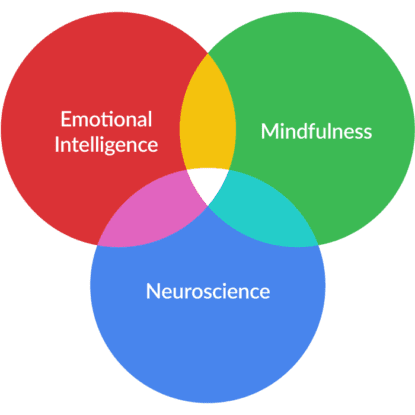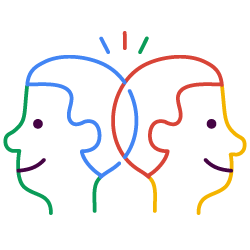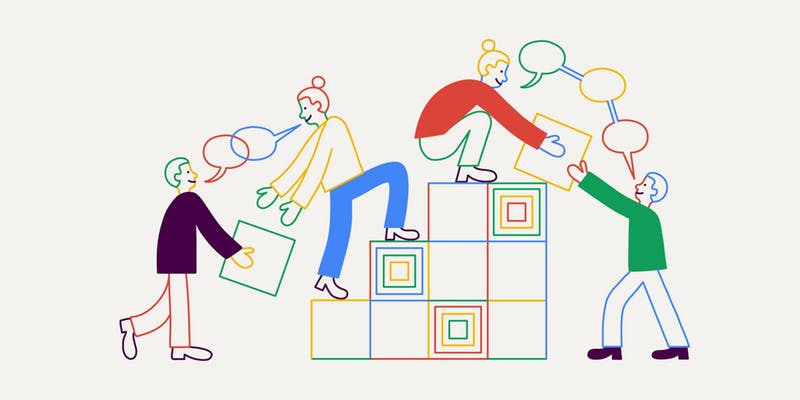The Science of Awareness-Based Leadership
An Interview with Rich Fernandez
By Garrison InstituteWhat does it mean to ground your leadership in a mindful awareness of what’s going on around you? Striking the balance between mindfulness and effectiveness can be hard to do, but with coaching and a deliberate understanding of the psychology of awareness, effects can reach all levels of the workforce. Rich Fernandez is the CEO of the Search Inside Yourself Leadership Institute, and he offers his insights on awareness-based leadership, explaining that it is not just a benefit, but a necessity.
Please tell us a little about the Search Inside Yourself Leadership Institute (SIYLI) and its mission.
SIYLI is a non-profit organization dedicated to making science-based mindfulness and emotional intelligence skills practical and accessible to everyone in the world. SIYLI originally grew out of Google, where the core curriculum (known as Search Inside Yourself, or just SIY) was developed and tested by Google employees and world leading experts in the fields of neuroscience, mindfulness and emotional intelligence.
SIY was offered broadly within Google and it was so successful that the independent non-profit organization SIYLI was created to offer SIY to other organizations.
SIYLI’s success comes in large part because it draws on neuroscience as a foundation for the development of useful mental habits and skills and the program itself focuses on the practical application of mindfulness in everyday work and life situations – such as difficult conversations and negotiations.

What are some of the benefits you see from SIY?
We have been delivering our SIY curriculum for more than 10 years in over 30 countries around the world and find the program to be beneficial across sectors, cultures and traditions.
We measure the effects of our core SIY mindfulness and emotional intelligence program pre- and post-program and some of our client organizations have measured the sustained effects as far as 6 months after training. We have found some statistically significant changes in participant’s reported levels of performance effectiveness, leadership and wellness as a result of the program. Some outcomes include:
- A greater ability to focus and optimize their mental state. For example, 49% of pre-program participants report that they take time to prioritize versus 71% post program.
- A greater resilience and mental readiness to meet daily challenges: for example, 34% reported being able to bounce back after a challenging situation pre-program, versus 60% post-program
- An increased ability to maintain calm and poise in challenging situations, from 34% pre-program to 60% post-program
How do these benefits translate into benefits for companies?
One of our major clients is SAP, the German enterprise software company, which was recently voted one of best places to work in the world. Every year thousands of their employees go through SIY and the outcomes are quite compelling.
We know for instance that SIY participants at SAP report 6.5% greater employee engagement, 9.2% better well-being, 13.8% better ability to focus, -7.6% less stress, 6.9% better communication and 5.2% better collaboration pre-versus post SIY.
SAP has also published results indicating that every 1% increase in employee well-being equates to 85-95 million euro per year in operating profit, and every 1% increase in employee engagement equates to 50-60 million euro in operating profit, and that SIY increases both of those aspects of employee experience by 9.2% and 6.5% respectively. In fact, SAP has indicated there is a 200% return on investment on SIY and mindfulness programming. So mindfulness isn’t just a “nice to have” offering, it also makes good business sense.
Based on SIYLI’s perspectives from working with organizations around the world, what seems to be missing in leadership today?
Leaders often overlook and underestimate their role in shaping an organization’s cultural and values. Paying attention to creating a culture of mindfulness, wellness and compassion is needed now more than ever. When SIY was initially created at Google there was a philosophy in the organization to create the “healthiest, happiest, and most productive workforce on the planet.” We knew that you couldn’t get to the third outcome–most productive workforce–without investing in the first and second areas–a healthy and happy workforce.
Recently Deloitte published their Human Capital Trends Survey 2018 and found that increasingly teams are operating as networks, making internal collaboration and agility top competencies within organizations. But what are leaders really doing to promote agility and collaboration?
We believe that creating more mindful and compassionate work cultures promotes psychological safety and well-being and as a result people are able to be their best, remain agile and feel good about collaborating. The question is how many leaders are really investing in building mindfulness, compassion and wellness into their cultures? We need more leaders to do so. Because we know the highest performing and best places to work are those that have these qualities of engagement, wellness and mindfulness.
What are the fundamental skills of high-performing teams and effective leaders?
We now know that the most important characteristics of an effective are trust and psychological safety.
We know that emotional intelligence is one of the most important characteristics for effective leadership. In a Harvard Business Review article, Jack Zenger and Joseph Folkman reported on a dataset of over 300,000 leaders, managers, and employees and what skills have the greatest impact on their success. Six of the top eight were EQ-related (inspiring and motivating others, displaying integrity and honesty, drives for results, communicating powerfully and prolifically, collaborating and promoting teamwork, building relationships) and the other two were intelligence-related (solves problems and analyzes issues, displays technical or professional expertise).
Recently Google conducted an internal study of their most effective and highest impact teams and they found that while dependability and structure were important, the most important characteristic was psychological safety. In these teams there was a level of trust in each other and from the leader that permitted the team to take risks, and sometimes fail but more importantly, be enabled to go after big goals and execute.
 In many ways, emotional intelligence operationalizes trust and trust and psychological safety results in organizational and leadership excellence. One great example for us to look at is the leadership of Jeff Weiner, the CEO of LinkedIn, who is routinely rated as one of the top 10 CEOs in the world by Glass Door (in 2018 he is rated #3). He speaks prolifically of the fact that compassion is the single most important characteristic of leadership, which leads to trust and organization effectiveness.
In many ways, emotional intelligence operationalizes trust and trust and psychological safety results in organizational and leadership excellence. One great example for us to look at is the leadership of Jeff Weiner, the CEO of LinkedIn, who is routinely rated as one of the top 10 CEOs in the world by Glass Door (in 2018 he is rated #3). He speaks prolifically of the fact that compassion is the single most important characteristic of leadership, which leads to trust and organization effectiveness.
Certainly, organizations and leaders can and do function without these characteristics, but there are hidden costs. The core question becomes what kind of leader does one wish to be, and what kind of team and culture does one wishes to create?
What’s one way that SIY teaches people to use mindfulness to reduce stress and enhance their wellbeing?
At SIYLI we have a simple and practical 5-part exercise that is proven to be helpful when faced with stressful situations. The steps are: Stop. Breathe. Notice. Reflect. Respond. We call it SBNRR (an easy way to remember this funny acronym is “Somebody Needs Some Rest and Relaxation). So, when you are dealing with stress the idea would be to:
Stop: Take a purposeful pause. Do not take any action, just stop.
Breathe: Take a deep breath. This literally quiets your brains alarm system (the limbic system) and activates the calming response (the vagus nerve and parasympathetic nervous system).
Notice: Become aware of your thoughts and emotions. Label the emotion or feeling if you are able – give it a name.
Reflect: Ask yourself…how might I most skillfully respond here, rather than just react? Fight the negativity bias – don’t over-generalize or catastrophize about the situation and take notice if you do.
Respond: Responding to stress rather than reacting is almost always the best approach. Look for possibilities or new ways of thinking. Reframe. Problem solve. There are almost always other possibilities in any situation, we just often do not take the opportunity to explore them in the moment.
All of this takes practice, and that is why we work so closely with individuals, teams and organizations to make the skills of mindfulness and emotional intelligence a set of healthy habits that people can practice regularly. Our ultimate aim is to make mindfulness, health, and wellness the norm and not an exception in our leaders and the cultures of our organizations, communities and society in general.
Rich Fernandez is the CEO of SIYLI. He was previously the director of executive education and people development at Google, where he was also one of the first SIY teachers. Rich previously founded Wisdom Labs and has also served in senior roles at eBay, J.P. Morgan Chase, and Bank of America. He received his PhD in Psychology from Columbia University and is a frequent contributor to the Harvard Business Review.
Search Inside Yourself training will occur at the Garrison Institute March 1-3. Click here to register and for more information.

Oh wow this article is very inspiring and I think I’d really benefit from studying the program. I live in New Zealand and at the moment I depend on receiving a Government benefit which is a low income. Thankfully I have a part time job that I love with a passion. I’m a part-time publishing networker for a charitable trust, who helps to compile Newsletters and other publications. I’m also supposed to network with other organizations, but I lack the self-confidence I need to actually do that part of my job. I need your help is there anyway you can do that with me?